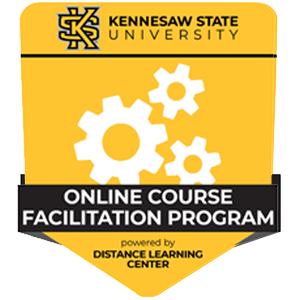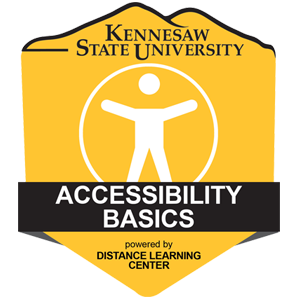Courses
EDRS 8000: Applied Quantitative and Qualitative Research
Prerequisite: Admission to graduate program (M.Ed., Ed.S., Ed.D.) in education or permission of the advisor
Candidates will develop a functional understanding of quantitative and qualitative research as applied to educational arena. Emphasis is placed on candidates acquisition of analytical and interpretive skills.
EDRS 8100: Qualitative Research I
Prerequisite: Admission to graduate study in education.
This course will serve as an introduction to qualitative research and methodologies. Methodological origins, theoretical frameworks, literature reviews, and basic methods of data collection and data analysis will be explored in conjunction with an analysis of relevant literature, educational research reports, and ethics in research. Students will apply basic skills of data collection and analysis. Students will differentiate between the types of qualitative research.
EDUC 8100: Advanced Study of Learning
Prerequisite: Admission to graduate program in education or permission of the adviser.
The course deepens experienced educators’ knowledge of research-based best practices in diverse classrooms. An advanced course with in-depth study of classic and current research on learning theories and related topics in educational psychology as they relate to teaching and learning in schools. Focus is on those theories and research which have transformed and are reforming educational practice.
EDUC 7797: Capstone in Middle and Secondary Grades Education
Prerequisite: EDRS 8000 and EDUC 7700
This course prepares advanced candidates to work under the supervision of faculty to demonstrate their expertise in a focused area of their teaching field through an independent, research-based capstone project. Candidates will also provide evidence of their efforts to transform their practice based on the specific strategies and knowledge bases developed and/or deepened in the program. Course includes 20-hour field experience in an approved educational setting with middle or secondary students.
EDUC 7705: Assessment and Evaluation in the Content Area
Prerequisite: Admission to graduate program in education or permission of the adviser.
This course focuses on planning, constructing, analyzing, and applying educational assessment to document student performance for instructional and accountability purposes. Specific topics include guidelines for the development of traditional assessment questions, including the use of multiple-choice questions to measure critical thinking and problem-solving skills; guidelines and rubrics for the development and scoring of performance, writing and portfolio assessments; assessing affective outcomes; describing, analyzing and refining data to improve assessment; and the application and interpretation of standardized norm and criterion-referenced measures. Additionally, attention will be paid to multicultural assessment procedures and concerns relevant to external assessment programs.
EDUC 6240: Psychological Foundations of Education
Prerequisite: Admission to MAT program
This course is an examination and application of the foundational and emerging psychological theories and research which shape educators’ understanding of their students, as well as their instructional decision making. The course examines topics such as child development, motivation, sociocultural identity, cognition, memory, assessment, and classroom management.
EDUC 2110: Investigating Critical and Contemporary Issues in Education
Prerequisite: ENGL 1102
This course engages potential education candidates in observations and interactions in schools, and analysis of critical and contemporary educational issues. Candidates investigate issues influencing the social and political contexts of educational settings in Georgia and the United States. Candidates actively examine the teaching profession from multiple vantage points both within and outside the school. Against this backdrop, candidates reflect on and interpret the meaning of education and schooling in a diverse culture. Includes the use of current technologies which are directly related to effective teaching and 15 hours of observation and participation in an appropriate school setting elementary/early childhood, middle grades, secondary or P-12 environments. Verification of professional liability insurance and a criminal background check are required prior to receiving a school placement.











